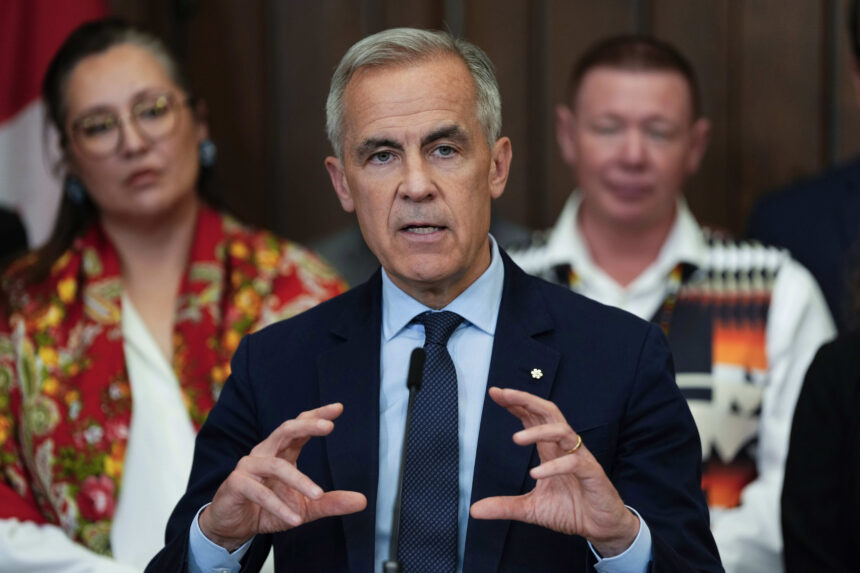In a watershed moment for Canada’s economic policy, Finance Minister Mark Carney’s contentious Building Canada Act received royal assent yesterday, concluding months of heated parliamentary debate. The legislation, which fundamentally overhauls how major infrastructure projects are approved nationwide, marks one of the most significant reforms to Canada’s economic framework in decades.
“This legislation will unlock Canada’s potential and create thousands of high-paying jobs while maintaining our environmental standards,” declared Carney during the bill’s final reading in Parliament. “We cannot afford to lag behind in a competitive global economy where infrastructure development has become a national security imperative.”
The new law establishes a streamlined approval process for projects deemed strategically important to Canada’s economic interests, reducing regulatory timelines from an average of four years to approximately 18 months. Critics argue this acceleration comes at a severe cost to environmental protections and Indigenous consultation rights.
Opposition parties mounted an extraordinary 72-hour filibuster attempt to delay the bill’s passage, with New Democratic Party leader Jagmeet Singh calling it “a corporate giveaway disguised as economic stimulus.” The Conservative Party, while supporting the bill’s economic aims, criticized specific implementation mechanisms as “creating unnecessary bureaucratic structures that could ultimately slow development.”
Environmental organizations have been particularly vocal in their opposition. Sierra Club Canada Executive Director Kate Milligan warned that “this legislation effectively guts the environmental assessment process that Canadians have fought decades to establish. The climate implications alone should have warranted more careful consideration.”
The legislation creates a new National Projects Office with sweeping authority to designate certain developments as “projects of national significance,” triggering an expedited review process. This office, to be established within 90 days, will report directly to the Prime Minister’s Office – a structure that has raised governance concerns among parliamentary watchdogs.
Indigenous groups across Canada have expressed profound disappointment with the final legislation. Grand Chief Stewart Phillip of the Union of British Columbia Indian Chiefs stated that “this bill fundamentally undermines our constitutionally protected rights to meaningful consultation. The government has chosen economic expediency over reconciliation.”
Business leaders, however, have enthusiastically welcomed the new law. Canadian Chamber of Commerce President Perrin Beatty called it “a transformative step toward addressing Canada’s infrastructure deficit” and suggested it could unlock over $80 billion in stalled investment projects across energy, transportation, and housing sectors.
The legislation includes provisions for a $15 billion Strategic Infrastructure Fund to support qualifying projects, with priority given to clean energy initiatives, transportation corridors, and housing developments. Economists remain divided on whether these incentives will actually accelerate economic growth as promised.
With implementation set to begin immediately, attention now turns to which projects will first receive the new designation. Government sources indicate that major transportation corridors in British Columbia and energy transmission projects in Atlantic Canada may be among the initial candidates.
As Canada embarks on this new regulatory approach, the fundamental question remains: can a nation simultaneously fast-track major development projects while upholding its environmental commitments and obligations to Indigenous peoples? The answer will shape not just Canada’s economic landscape, but its very identity as a nation for decades to come.


















